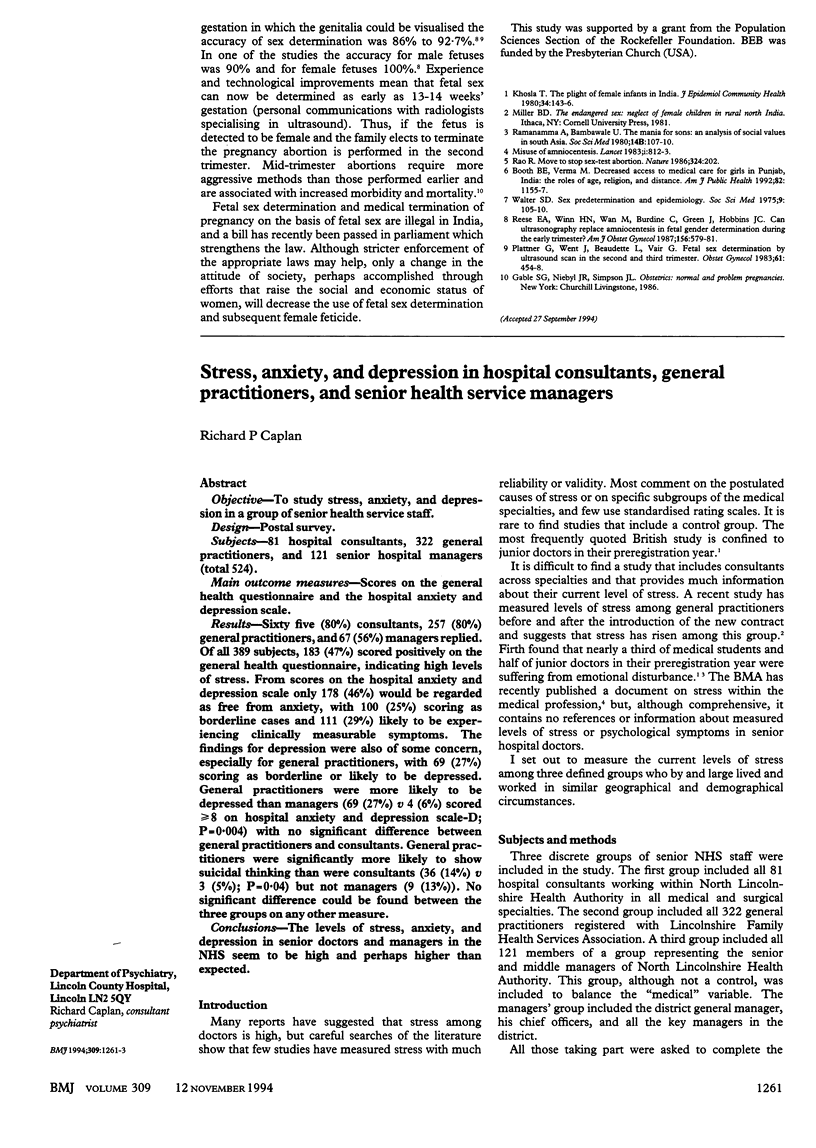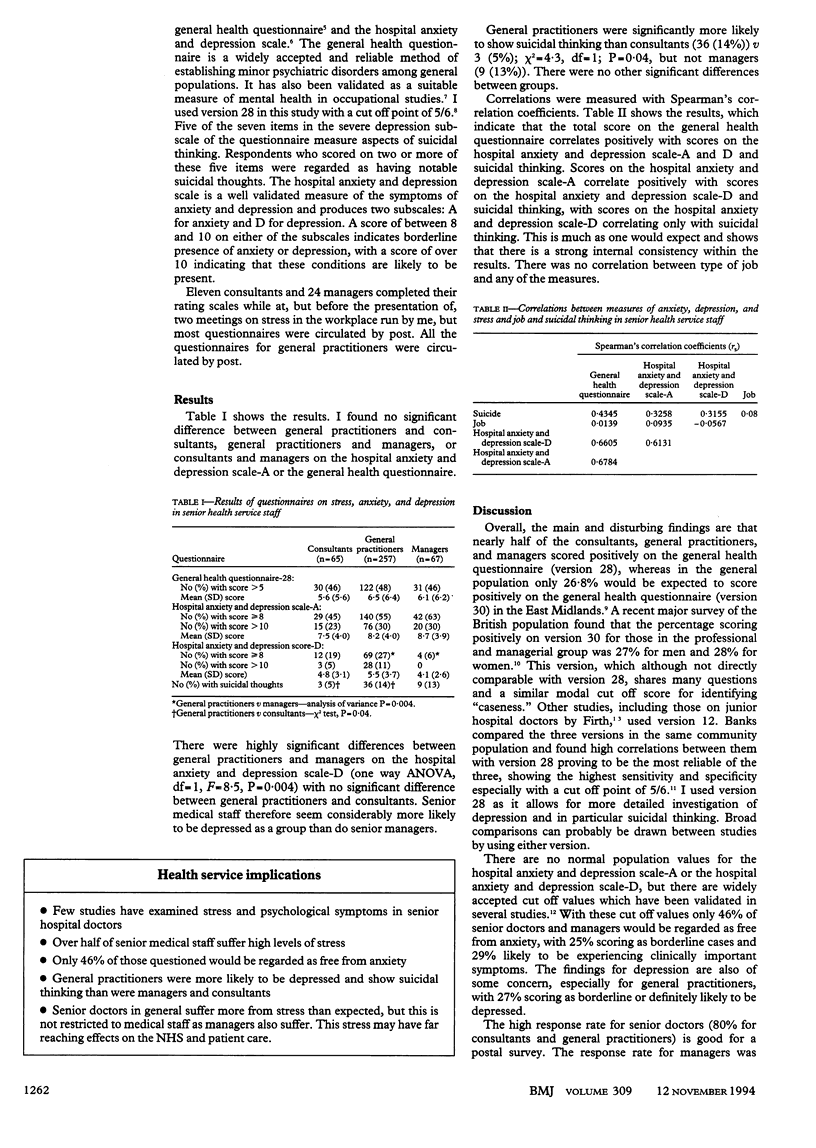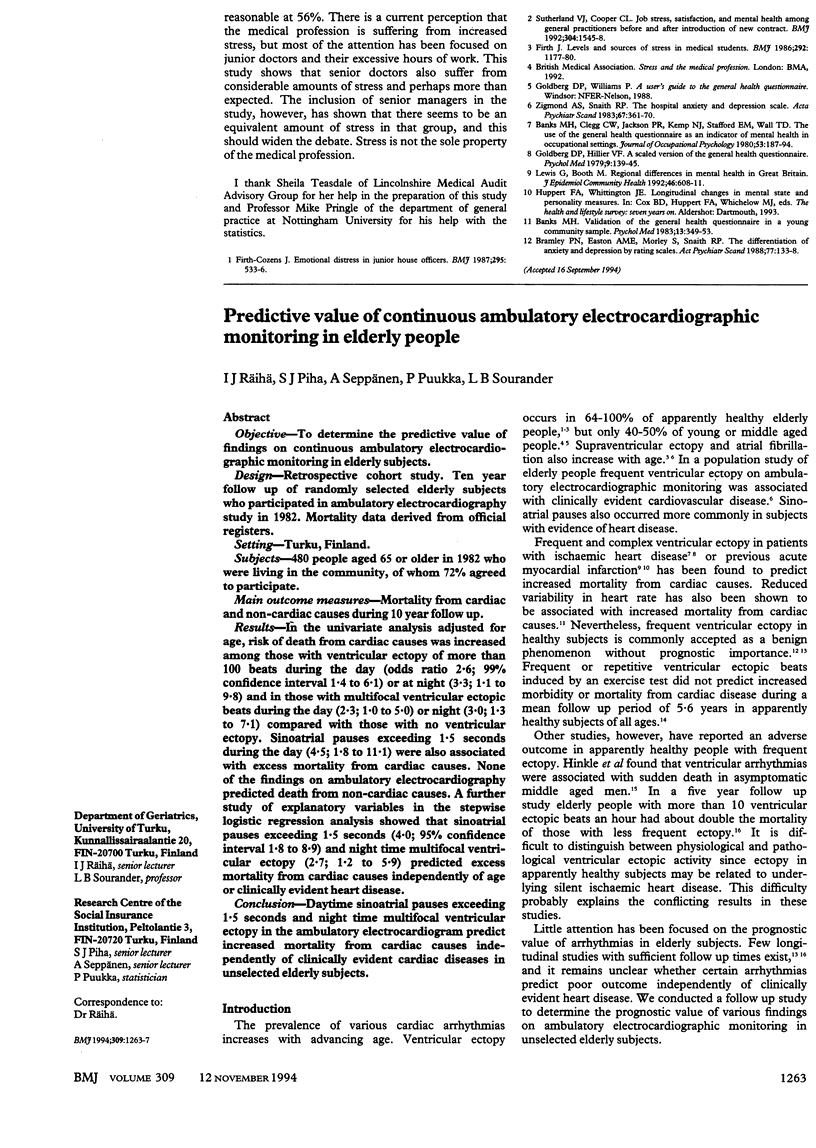Abstract
OBJECTIVE--To study stress, anxiety, and depression in a group of senior health service staff. DESIGN--Postal survey. SUBJECTS--81 hospital consultants, 322 general practitioners, and 121 senior hospital managers (total 524). MAIN OUTCOME MEASURES--Scores on the general health questionnaire and the hospital anxiety and depression scale. RESULTS--Sixty five (80%) consultants, 257 (80%) general practitioners, and 67 (56%) managers replied. Of all 389 subjects, 183 (47%) scored positively on the general health questionnaire, indicating high levels of stress. From scores on the hospital anxiety and depression scale only 178 (46%) would be regarded as free from anxiety, with 100 (25%) scoring as borderline cases and 111 (29%) likely to be experiencing clinically measurable symptoms. The findings for depression were also of some concern, especially for general practitioners, with 69 (27%) scoring as borderline or likely to be depressed. General practitioners were more likely to be depressed than managers (69 (27%) v 4 (6%) scored > or = 8 on hospital anxiety and depression scale-D; P = 0.004) with no significant difference between general practitioners and consultants. General practitioners were significantly more likely to show suicidal thinking than were consultants (36 (14%) v 3 (5%); P = 0.04) but not managers (9 (13%)). No significant difference could be found between the three groups on any other measure. CONCLUSIONS--The levels of stress, anxiety, and depression in senior doctors and managers in the NHS seem to be high and perhaps higher than expected.
Full text
PDF


Selected References
These references are in PubMed. This may not be the complete list of references from this article.
- Banks M. H. Validation of the General Health Questionnaire in a young community sample. Psychol Med. 1983 May;13(2):349–353. doi: 10.1017/s0033291700050972. [DOI] [PubMed] [Google Scholar]
- Bramley P. N., Easton A. M., Morley S., Snaith R. P. The differentiation of anxiety and depression by rating scales. Acta Psychiatr Scand. 1988 Feb;77(2):133–138. doi: 10.1111/j.1600-0447.1988.tb05089.x. [DOI] [PubMed] [Google Scholar]
- Firth-Cozens J. Emotional distress in junior house officers. Br Med J (Clin Res Ed) 1987 Aug 29;295(6597):533–536. doi: 10.1136/bmj.295.6597.533. [DOI] [PMC free article] [PubMed] [Google Scholar]
- Firth J. Levels and sources of stress in medical students. Br Med J (Clin Res Ed) 1986 May 3;292(6529):1177–1180. doi: 10.1136/bmj.292.6529.1177. [DOI] [PMC free article] [PubMed] [Google Scholar]
- Lewis G., Booth M. Regional differences in mental health in Great Britain. J Epidemiol Community Health. 1992 Dec;46(6):608–611. doi: 10.1136/jech.46.6.608. [DOI] [PMC free article] [PubMed] [Google Scholar]
- Sutherland V. J., Cooper C. L. Job stress, satisfaction, and mental health among general practitioners before and after introduction of new contract. BMJ. 1992 Jun 13;304(6841):1545–1548. doi: 10.1136/bmj.304.6841.1545. [DOI] [PMC free article] [PubMed] [Google Scholar]
- Zigmond A. S., Snaith R. P. The hospital anxiety and depression scale. Acta Psychiatr Scand. 1983 Jun;67(6):361–370. doi: 10.1111/j.1600-0447.1983.tb09716.x. [DOI] [PubMed] [Google Scholar]


